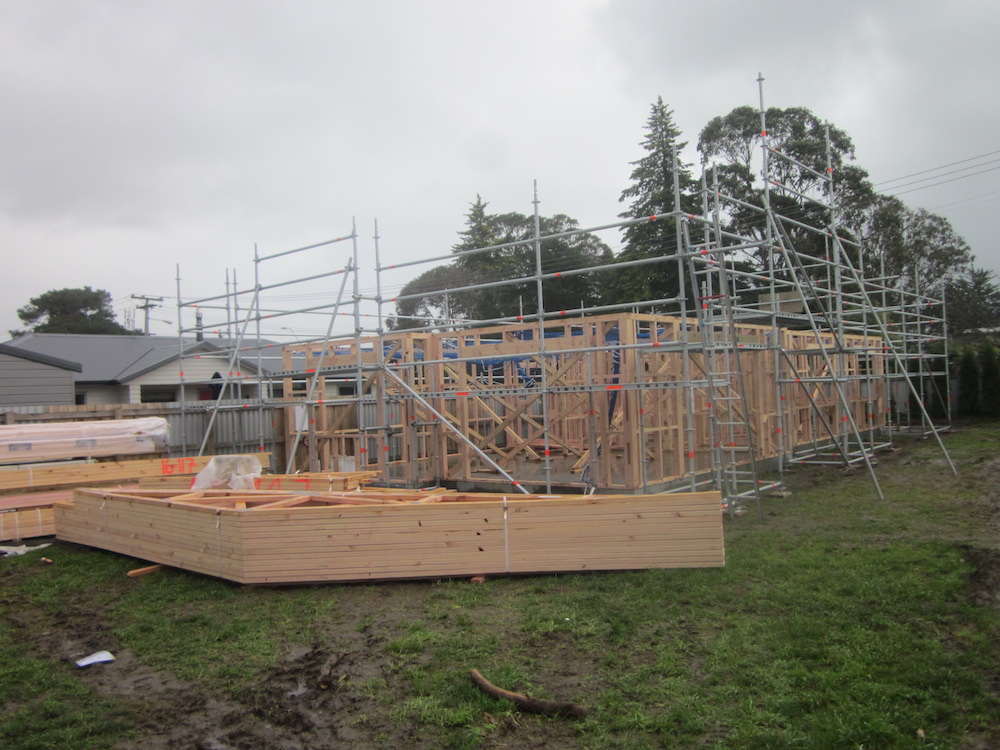Napier, MSCNewsWire, Sunday 10 July 2016 - The cost of the tiny kitset house in our photograph will increase by around $15,000 because of the elaborate scaffolding and safety netting (blue rope net in photo) required with reinforced building safety codes.
Also included in these additional costs are those of site ringing safety fencing and also those in the constant and vigorous inspection of all these.
These extraordinary extensive and expensive precautions are all the more curious considering the safety record of the house construction sector which is already under constant safety self-regulation by its own professional organisation, the Master Builders Association.
In fact there were 198 ACC claims for falls and no fatalities from the house construction workforce in 2014. There has been only one fatality recorded from a house construction fall in the past five years.
Government legislative intervention in the house building sector since the 1980s has had the opposite effect of the one intended.
There was the government pull back on the nation’s tough building regulations and the substitution of new ordinances opening the way for untreated timber.
This was compounded by the infliction on house buyers of new ordinances that permitted the construction of residences that were later discovered to be non-weathertight due to basic flaws in the now-permitted designs.
On top of these officially-imposed and destructive regulation switches came the imposition of a university academic training regime to supercede apprenticeships.
The consequences of all these are evident today as is the new on-cost of the ultra-safety regime.
Indications are that each of these state-imposed obstructions to cost-effective house construction has been due to the power of the lobby of the non-productive sector, and the need for legislators to appease it.
This is the very sector that is now making the most noise about the house shortage.
From the MSCNewsWire reporters' deskThis email address is being protected from spambots. You need JavaScript enabled to view it.

 Follows state approval of non-treated timber, leaky house design & pull-back on apprentices
Follows state approval of non-treated timber, leaky house design & pull-back on apprentices